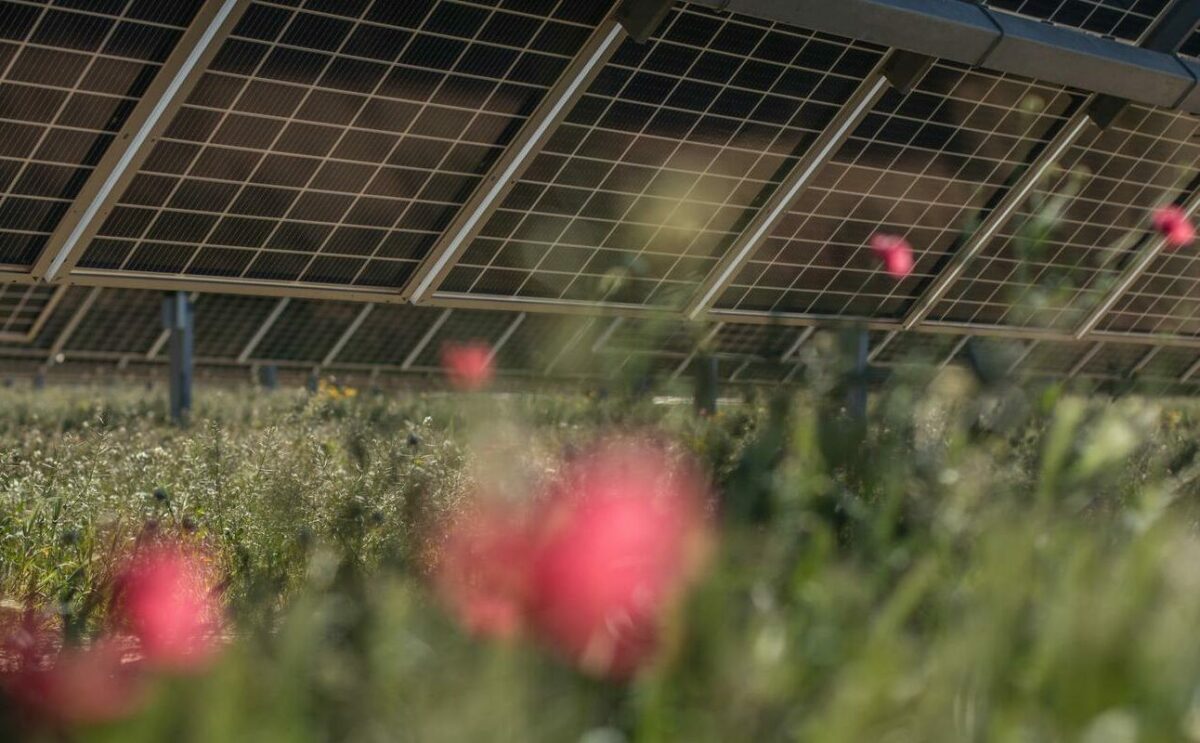CCO Katherine Ryzhaya Talks REC Arbitrage on Smart Energy Decisions
Lightsource BP North America CCO Katherine Ryzhaya, wrote an interesting piece on the prevalence of Virtual Power Purchase Agreements and their impact on Renewable Energy Credits for online energy publication Smart Energy Decisions.
Original article: No longer reserved for the Fortune 500, financial instruments like Virtual Power Purchase Agreements (VPPAs) are gaining popularity among smaller companies and public-sector entities looking to cost-effectively meet clean energy goals. Google, Apple, Amazon, and Walmart have paved the way for other, more risk averse but environmentally-minded entities to power their operations with renewable energy. This new wave of buyers – from regional businesses to universities, cities, and municipal agencies – shares the same clean-energy ambitions as the Silicon Valley tech giants, but often lacks the resources, power markets savvy and financial wherewithal of the “originals.”
Many buyers today simply cannot – or will not – absorb a ‘green’ premium in long-term clean-energy contracts. Also over are the days of plain-vanilla PPA structures where absorbing risk is seen as the cost of doing business. From sophisticated power supply arrangements to basis risk management, large loads are re-charting the way power is sourced and consumed.
The most attainable way price-sensitive VPPA off-takers can enhance their VPPA economics is by maintaining a flexible approach to Renewable Energy Credits (RECs). This is particularly relevant for projects sited in burgeoning regulatory markets like PJM, New England, and New York. In these markets, credits regularly fetch $20-30 per megawatt-hour (MWh) or more. That’s because these REC regimes were designed for compliance buyers – utilities, refineries and other large polluters. A corporate entity acting as a buyer in a VPPA has no use for compliance-grade RECs and can lower the overall cost of its renewable deal by swapping out compliance RECs for voluntary ones.
By maintaining the ability to ‘REC swap’ – that is, to strip out valuable project RECs and substitute less-valuable ‘unbundled’ RECs in a VPPA – prospective buyers can expand the universe of cost-competitive projects available to them and gain access to lower pricing. And for existing buyers, who may be locked into an underwater VPPA contract, a REC swap offers a way to reduce or eliminate losses on the deal.
The rest of this article outlines how a REC swap (sometimes referred to as ‘REC arbitrage’) works and where it can maximize value for price-sensitive clean-energy buyers. But first, a disclaimer: a REC swap may complicate an organization’s renewables claims and ‘additionality’ story. Regardless, not every buyer will be comfortable with a REC swap even if many already freely engage in the practice, including some of the most visible clean-energy champions. (We won’t name names, but you know who you are.)
There are three different ways for a buyer to handle RECs in a VPPA:
- Buy the ‘bundled’ project RECs and energy; retire the RECs to make renewables claims.
- Buy the ‘bundled’ project RECs and energy; sell the (high value) RECs and buy cheaper RECs to make renewables claims.
- Buy project energy only, allowing the project’s RECs to be sold separately (in exchange for a lower PPA price); buy cheaper RECs to make renewables claims.
As a rule of thumb, for a utility-scale solar project, a REC swap will lower the VPPA price that a developer is able to offer a customer by roughly $5-10/MWh in PJM, $20/MWh in New York, and $30/MWh in most New England states. While large blue-chip corporates may be willing to pay the bundled REC premium in the name of ‘additionality,’ smaller budget-constrained buyers – which account for a growing share of the overall market – simply cannot afford to ignore the value of a REC swap when signing long-term clean-energy contracts.
Related news
14 Jul, 2025
Inspiring future energy leaders: ESCP students explore Manor Farm Eggington
Students from ESCP Business School’s London Campus were invited by Lightsource bp to an exclusive visit to the Manor Farm Eggington in Leighton Buzzard.
10 Jul, 2025
Lightsource bp championing sustainable agriculture at AgriVoltaics World Conference 2025
Lightsource bp was proud to be the Gold Sponsor at the AgriVoltaics World Conference 2025 in Freiburg, Germany.
26 Jun, 2025
Lightsource bp signs first PPA in Taiwan with Star Trade for pilot fishery solar project
Lightsource bp has signed a power purchase agreement (PPA) with Star Trade for its Budai solar project in Taiwan.
10 Jun, 2025
Lightsource bp secures financing on its first project in Taiwan and its pilot fishery solar project globally
Lightsource bp, a leading developer and manager of global onshore renewable energy projects, has secured financing for its 115MWp fishery solar project in Taiwan.
05 Jun, 2025
PPAs: a key lever for the energy transition in Europe
Watch our webinar to learn about how sustainable PPAs are emerging as a key commercial solution for corporate buyers.
29 May, 2025
Lightsource bp publishes 2024 Sustainability Report
Lightsource bp, a global trusted partner in delivering onshore renewable energy solutions, is pleased to publish its 2024 Sustainability Report.
28 Apr, 2025
Lightsource bp celebrates World Safety and Health Day 2025
Lightsource bp celebrates World Day for Safety and Health at Work. At Lightsource bp, safety isn’t just one of our core values, it’s ingrained in our culture.
22 Apr, 2025
Celebrating Earth Day: Renewable energy for our world
Lightsource bp celebrates Earth Day! We're safely delivering large-scale renewable energy projects to create sustainable value for our people, partners and planet.
03 Apr, 2025
Brazil: Milagres named among top solar developers in 2024
Lightsource bp’s Milagres solar farms have been recognised as top-performing renewable energy projects in Brazil, ranking among the top 20 solar developers by e-Power Bay.
02 Apr, 2025
Lightsource bp contributes to the World Economic Forum’s conversation on responsible renewables deployment practices
Lightsource bp’s Penny Laurenson, Global Head of Sustainability, contributed to WEF’s conversation and thought leadership on responsible deployment practices.










